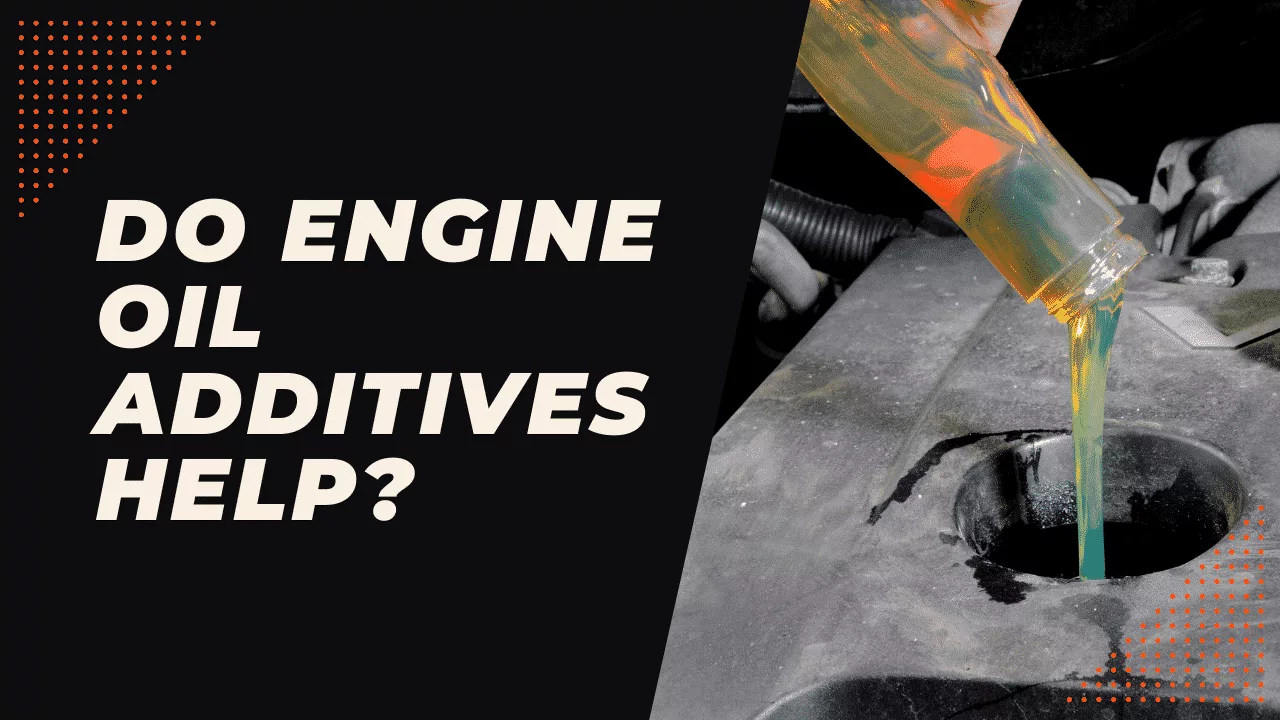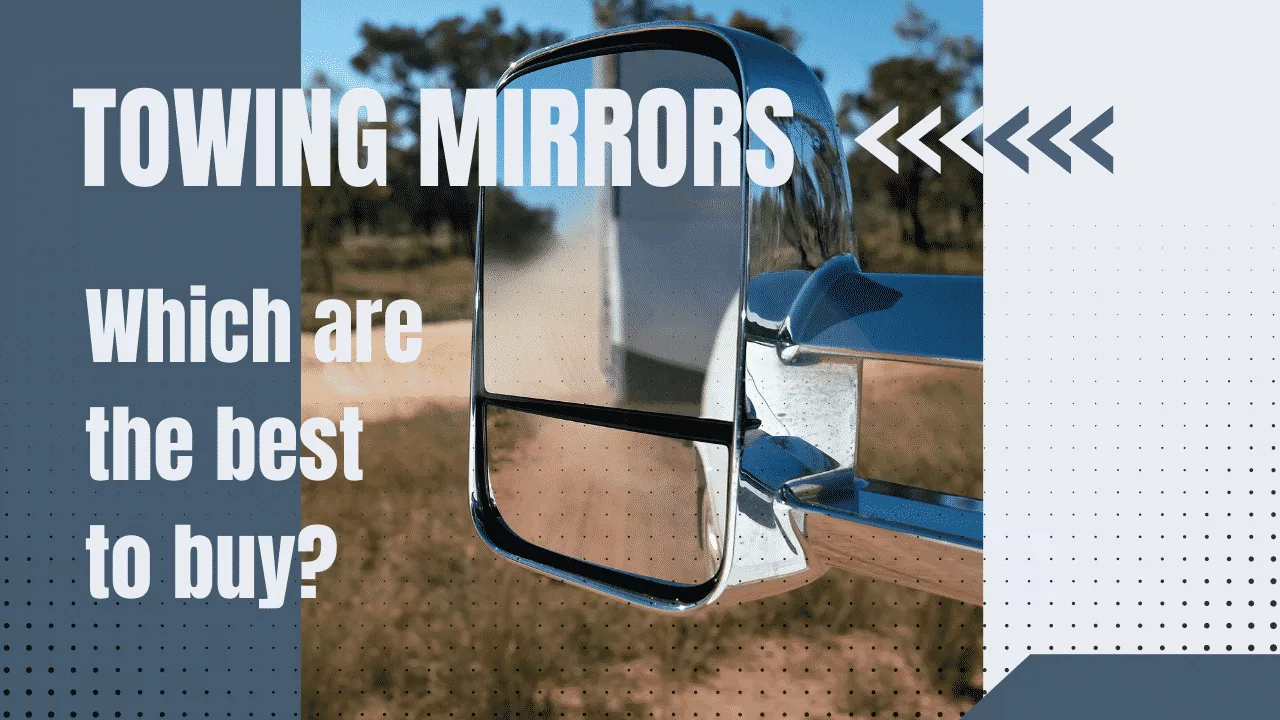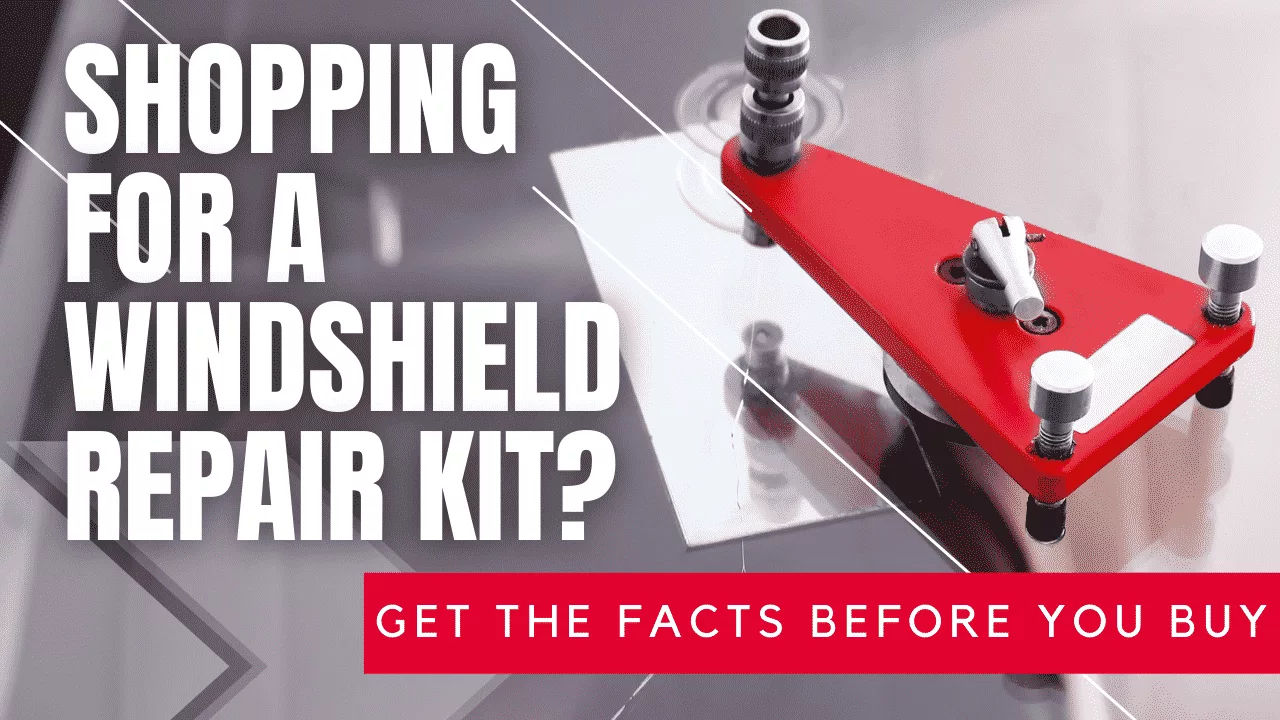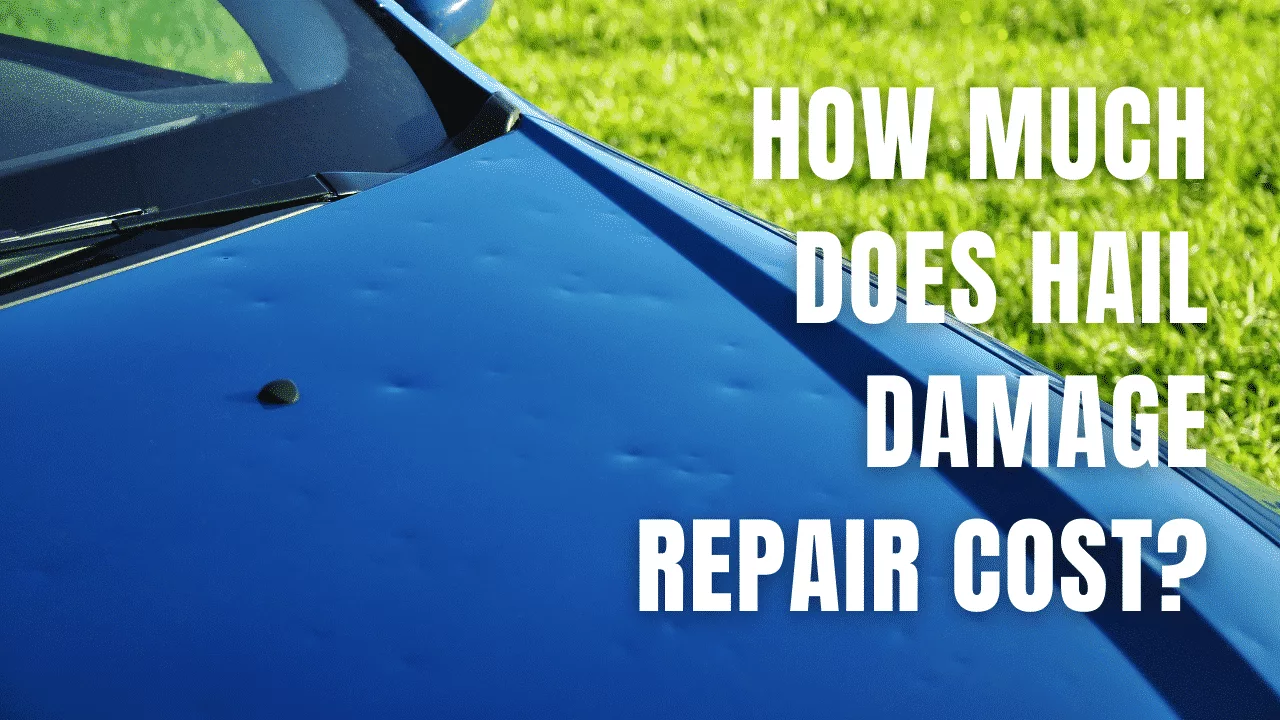Cleaning our vehicles and deciding on which car wax is best doesn’t have t be difficult. Some simple guidelines can help you decide which wax is best for your vehicle, depending on the circumstance. For one thing, if your car has micro scratches or swirls in its finish, you should use a polish first. If not, these defects will show up after applying wax.
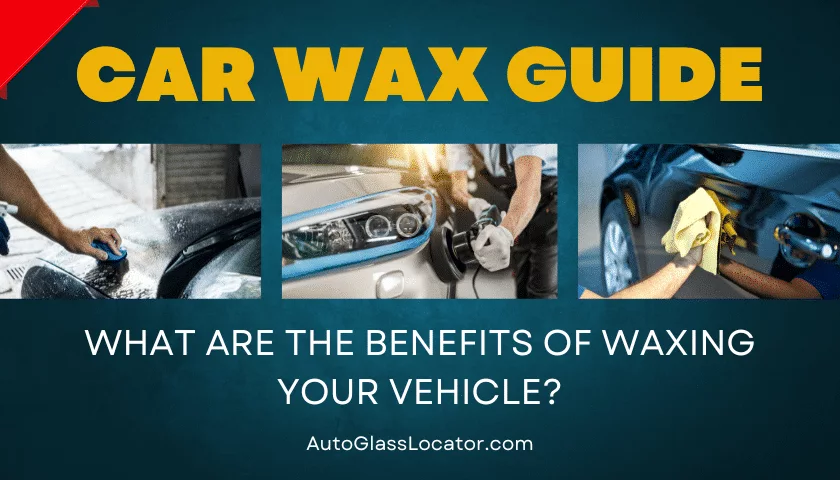
Car Wax Guide
What types of car wax are there?
Many car waxes are on the market, making it difficult to decide which is the best wax product for you. Some popular brands like Meguiar’s and Turtle Wax are great and produce a wet gloss finish, but I like to know what else is available and how it should be used. This article will explore what car wax is, why your car needs it, and how often you should wash and apply a coat of wax.
We’ll also get into which type of wax best suits different climates so you can pick the right one without trying them all! Don’t worry. We’re working on another post with instructions on the complete process a detailer would use to finish a full detail. We’ll show you how a little elbow grease can restore your automobile to a plush new appearance again.
Carnauba Wax:
What is Carnauba Wax?
Carnauba Wax is a paste-like car wax designed to provide long-lasting protection against the sun and other elements. It forms a protective coating that can last up to six months, making it an ideal choice for people who live in warmer climates.
How Does Carnauba Wax Work?
Unlike traditional wax, Carnauba Wax bonds to the surface of your car, creating a durable barrier that resists fading or discoloration. Additionally, it absorbs UV rays, preventing your car’s paint job from deteriorating over time due to exposure to sunlight. Finally, the protective coating reduces dirt accumulation on the surface of your car and makes it easier to clean off any dirt that does accumulate.
What Are The Benefits Of Using Carnauba Wax?
The biggest benefit of using Carnauba Wax is its long-lasting protection against environmental damage. In addition, the wax creates an easy-to-clean surface by repelling dirt and debris while providing a deep sheen when polished properly. Finally, as one of the hardest waxes available, it provides extra scratch resistance compared to traditional products.
Is Carnauba Wax Easy To Use?
Yes! While you may need some practice applying and polishing Carnauba Wax accurately and uniformly around your car’s curves and edges, once you get the hang of it, you should be able to apply and remove this product quickly without issue.
Sealant Wax:
What is Sealant Wax?
Sealant wax is a type of wax that works especially well in colder climates, where snow, sleet, and salt are common on roads. In cold climates, it’s important to protect vehicles with a sealant wax because it helps keep the paint job looking new in temperatures as low as -30°F.
How does Sealant Wax work?
It helps clean the car’s surface by repelling water and road contaminants like oil, antifreeze, and salt. This type of wax also offers a stronger layer of protection than traditional waxes that can wash off quickly, ensuring the car maintains its shine all year round.
Is Sealant Wax easy to apply?
Sealant wax is easy to apply; spread it onto wet areas after the car has been washed, and then rinse the excess with clean water. The application process takes approximately fifteen minutes but will ensure a smooth, sleek finish for many years if applied correctly and consistently every few months.
Spray Wax:
What is Spray Wax?
Spray Wax, also known as cleaner waxes, is a type of car wax specifically designed to be easy to apply and quickly add a layer of protection and extra shine to the car’s paintwork. It’s especially great for those who don’t have the time, patience, or knowledge to do the task correctly themselves.
How do you apply Spray Wax?
Spray Wax is applied using a pump action spray bottle or an aerosol can. Spraying the wax over the paint’s surface creates an even, thin, cloud-like layer. The wax does not last as long as other types of car wax, requiring it to be re-applied every few months to keep a great luster and shine.
With its convenience and fast application process in mind, Car Spray Wax may be seen as attractive by both professional detailers searching for time-saving options and busy users looking for an easier way to protect their paintwork.
Does car Spray Wax remove oxidation?
Car Spray Wax can be used to provide decent protection for your car paint from oxidation and other environmental elements. It provides a barrier against the damage caused by dirt, dust, water, and air-borne pollutants. The wax will fill in small scratches and holes on paint surfaces and make your vehicle look glossy and bright.
However, it won’t actually remove oxidation or restore damaged paint, so if you want to get rid of that chalky, dull-looking surface, you need a specialized compound or product, such as polish, to remove the oxidation from your car’s paint properly.
Liquid Wax:
What is Liquid Car Wax?
Liquid wax combines waxes and solvents designed to provide superior protection against damaging environmental elements such as UV rays, airborne pollutants, and water while adding a quality shine to the car’s exterior. This type of wax is particularly popular amongst car enthusiasts because it allows them to give their vehicles an extra layer of protection without investing a lot of time in the process.
Is Liquid Wax easy to apply?
Applying liquid wax is quite easy and can be done by hand just as easily as with a machine. All you need to do is make sure you remove all dirt, grease, and other surface contaminants from the vehicle before applying the wax, otherwise, it won’t stick properly or provide any benefits. The liquid wax can be applied with a clean cloth or sponge and allowed to dry for several minutes before being buffed off with another cloth.
What are the benefits of Liquid Car wax?
Thanks to its combination of ingredients, liquid wax sticks better than spray-on waxes, requiring fewer applications. In addition, it has stronger bonding capabilities compared to aerosolized sprays making it longer lasting when compared over time. It also creates a more even protective layer which reduces water spots and damage caused by bug residue that’s not removed quickly, making it perfect for those who like regular glossiness without investing too much time in maintenance.
Compound Wax:
Compound wax is a special wax developed to maintain the luster and anti-corrosive protection of new cars. It is the go-to choice for car enthusiasts committed to preserving the look and feel of their prized automobiles.
Compound wax often requires tools like buffers, polishers, and special pads to generate the desired shine, leaving an unparalleled cherry finish that stands out from anything else on the road. With such an advanced level of protection and detailing, it comes at a price – professional compound wax applications can cost between $150 to $250, depending on the detail shop you visit.
The remarkable thing about applying compound wax is that it aims to provide more than just glossy finishes. Instead, this type of wax creates layers upon layers of ultra-thin polymer coating designed to protect your vehicle from corrosion damage that other products cannot prevent. Compounding wax is worth the investment for drivers passionate about protecting their cars’ finish.
What are the benefits of waxing your car?
Waxing protects the car, so it’s important always to wax your vehicle on a schedule. Waxing protects the paint from UV rays which cause oxidation, which leads to cracks in the finish and dull colors. When you coat your car with this protective layer, you’ll add a shine that lasts for months instead of weeks.
Automotive wax will also protect against surface scratches, making your vehicle’s paint last much longer. It also keeps debris from sticking, which can be a huge problem in the summer when pollen and other things stick to cars easily because of all that water on them.
This is just the tip of the iceberg for waxing, so keep reading if you want more information about it!
Wax is also useful in protecting your paint from bug splatters and bird droppings (poop) which can cause permanent damage if not taken care of quickly.
Waxing also gives your car the deep and rich look that almost every driver wants, which is why waxing should be done at least once or twice a year!
Does it matter what color vehicle I have?
No, it doesn’t matter what color car you have. However, black cars are more difficult to wax, so I recommend having a professional wax or buff the car if it’s black. It’s super easy to cause webbing or light web-shaped scratches in black paint when using an orbital buffer which is why it’s important to hire a professional detailer.
If your vehicle already has swirls or webbing, a basic wash and wax will not be enough to restore the surface and could cost between $50 and $150, depending on the additional steps needed. For example, the process may require the detailer to use a clay bar before waxing to remove surface contamination and a rubbing compound to remove heavier scratches and swirls.
Having your car detailed by an experienced professional will help restore its original beauty, bringing back that glossy, sparkling finish that makes everyone look twice when driving down the road!
FAQ
What are the benefits of using a clay bar before waxing?
Clay baring your car before waxing offers many benefits. Using a clay bar helps to remove dirt, overspray, tree sap, and embedded contamination that has bonded to the surface of the car’s paint.
By doing this step, you can prepare your car for the wax application so that the wax won’t bond with those particles and create an uneven surface. Claying also helps improve the glossiness and color of your car’s paint by exfoliating oxidized elements from its surface without damaging or removing any factory-applied layers.
What type of wax lasts the longest after it’s applied?
In terms of longevity, Carnauba wax typically lasts anywhere from three to six months after its application. This largely depends on factors such as the type of car being waxed, the climate, and how often you wash your car. If you live in an area with higher temperatures and lots of sunshine, your wax will almost certainly wear down much faster than in an area with cooler temperatures and low sunshine levels.
Is there a difference between car wax and polish?
Car wax and car polish are two different products with distinct purposes. While car wax is used to provide a protective coating that prevents dirt, debris, and moisture from adhering to the car’s surface, car polish is designed to restore clarity and brightness to exterior finishes that have become dull in appearance due to oxidation, dirt, and other environmental elements.
Car wax maintains a vehicle’s finish by creating a barrier between the paint and the environment. This barrier can keep water from clinging onto your vehicle’s body which helps protect the exterior from rust-causing damage. It also keeps dust particles, bird droppings, and road grime from sticking to surfaces. Once applied, it can last anywhere from 1–3 months before needing a reapplication.
Car Polish is an abrasive liquid constructed of mild solvents, oils, and grit that helps buff out light scratches while restoring the surface to its original shine. Not only will it make the paint appear vivid again, but it also seals against future pollutants with a layer of protection that makes your ride smooth as silk when you rub your hand across its finish. Carnauba wax is often added within such liquids for an added layer of ceramic protection against dirt particles and other harmful contaminants.
Can too much wax damage the paint?
Too much wax may not damage the paint alone, but it can leave behind cloudy patches that are difficult to remove and might even require professional detailing services to clean properly. In some cases, a heavy wax buildup may need to be removed with an industrial-grade stripping compound and then polished afterward – this type of extreme treatment can severely damage the paintwork, so it should be avoided whenever possible!
Can high-speed polishing cause burns in the paint?
Polishing a vehicle with a high-speed rotary buffer can generate enough heat to damage the car paint, even in experienced hands. This heat-induced discoloration and burning are called “burning” or “burning off.”
Highly intense friction generated by a fast spinning buffing pad on top of the compound applied to the surface can cause paint to reach temperatures up to 180° Celsius (356 °F), above liquid metal’s boiling point. The combination of heat and pressure from the machine head leads to oxidation, breakage of binder molecules within the clear coat, and eventual burnout.
Can burned paint be fixed?
In some cases, burns may not be able to be fixed due to severity or because of the type of coating present on the surface. If this is so, you may need to ask your paint service provider for advice, as they may be able to recommend a product that specializes in fixing these types of issues. In some instances, comprehensive repairs will be required, whereas large sections require wet sanding and repainting.
How often do I need to wax my car?
The frequency of waxing your car depends on several factors, including the climate you live in and the material used for your car’s exterior. Generally speaking, if you live in a mild climate, waxing your car once a year should suffice. If you live in a region with extreme weather conditions, like high temperatures or cold weather, waxing twice a year is recommended. Additionally, if you don’t park in a garage, you may consider applying a hand wax every three months.
Can drive-thru car washes scratch the paint?
In most cases, the answer is no. Most drive-thru car wash brushes are made of soft chamois cloth material, so they won’t cause any scratches unless they’re dirty. The dirt on a brush can contain small stones and fragments that could cause scratches if not removed beforehand. If you bring an extremely dirty car to a drive-thru wash, you risk having the dirt and grime on the exterior scratched by its brushes.
Therefore, you may consider opting for a touchless car wash instead. These don’t use brushes at all and offer an excellent way to expertly detail your vehicle without worrying about causing any damage. However, note that some stubborn dirt may remain after using a touchless carwash for excessively dirty vehicles.
No matter what kind of vehicle wash you choose, extra measures such as pre-cleaning or prepping the outside of your vehicle beforehand can help prevent scratches when the surface is hit by the chamois brushes.
Does car wash soap remove the wax on my car?
No, car wash soap does not completely remove wax from a car. Over time, these soaps can break down the sealant and reduce its protecting properties. However, frequent washing accelerates the breakdown process and requires additional waxing to prevent oxidation from occurring. In addition, if you feel your car’s paint is dry upon running your hand across it, you should consider scheduling a wax job as soon as possible.
Which wax provides the best UV protection?
Many experts would agree that Collinite 845 Insulator Wax is one of the best car waxes available regarding UV protection. This exceptionally durable wax builds a firm barrier between your car’s paint job and the sun’s harsh rays. It provides strong resistance against fading and oxidation caused by direct exposure to bright sunlight and UV rays.
Zymol HD Cleanse is also great for superior UV shielding and paint protection benefits. Its glossy finish provides deep color clarity while repelling dust and dirt adhesion so that lighter cleaning is required overall after regular use. Besides this, Zymol HD Cleanse provides environmentally friendly properties with its natural extracts, such as olive leaves and juniper berries, balancing out its strong synthetic resins, which are water-based and hence highly safe for delicate surfaces.
If you’re searching for a top-notch car wax with superior UV protection, consider investing in products such as Collinite 845 Insulator Wax or Zymol HD Cleanse. They will both provide excellent levels of protection while still delivering impressive results!
Recommended Cosmetic Services
Key Takeaways
- Choosing a wax type for your car is important for protecting the paint job from UV rays. Collinite 845 Insulator Wax and Zymol HD Cleanse are great options for superior UV protection.
- Drive-thru car washes can cause minor scratches if the vehicle is excessively dirty, so it’s best to opt for a touchless car wash instead.
- Carnauba wax is a popular choice for car waxing due to its durability and glossy finish. It is derived from the leaves of the Brazilian palm tree, Copernicia prunifera, and is known for its water-resistant properties.
- Spray waxes are a great option for those who want to quickly wax their car without applying it by hand. These are also labeled quick detailer products that are easy to use and provide a glossy finish that lasts several weeks.
- Too much wax can leave a cloudy residue requiring professional detailing services to remove. To avoid this, it is best to apply a thin layer of wax and buff it off with a clean microfiber cloth.
- High-speed buffing or polishing can burn the paint and require wet sanding to remove. It is best to avoid high-speed buffing and opt for a slower-speed setting instead.
Finishing It Up
I hope you’ll find it easy to pick a wax that works best for your car now that you’ve read this article’s details. It’s a personal opinion, but a polymer-based wax is best if you don’t need surface scratches removed or feel like paying a professional.
Whatever you decide is best, avoid polishes with alcohol, which can leave residue on the surface and attract dirt. Waxes also come in different levels of glossiness. I like having something in my arsenal that makes the car super shiny after it’s been polished. Mothers and Meguiar’s are my top 2 picks for an incredibly smooth and slick-looking exterior. If you liked this article, you might enjoy our next one, which covers the seven steps to Detailing a Car, or our article on removing paint scratches if you’re a DIYer.

